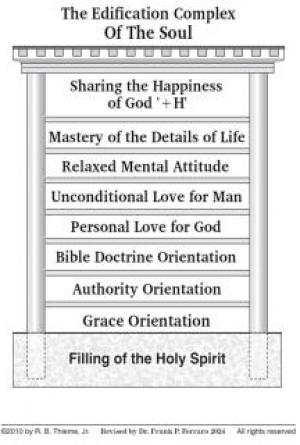FOOTNOTES (71-102)
[71] The information which Allahu ta’âlâ sent to prophets
through an angel is called the Sharî’at. Each Muslim learns the
Sharî’at from masters. When a Muslim’s heart has been purified from
sins, information on the Sharî’at comes to his heart by itself.
That Muslim has reached the haqîqat. To reach the haqîqat, it is
necessary to strive and make progress in the way called tasawwuf.
The spiritual training that is done and the things that are
required to enter this way until reaching the haqîqat are called
the tarîkat. A Muslim who has attained the end of one of the paths
called tarîqât is called ‘Walî’, (pl. Awliyâ), and the rank he has
reached is termed ‘Wilâyat’.
[72] One person performs namaz in the front;
the others, behind him, perform it like him by adapting themselves
to him. The person who performs it in the front is called the imâm.
Those who perform it behind him are called the jamâ’at.
[73] It means border. It is the amount of
property distinguishing being rich from being poor. He who has
property less than this amount is called poor. He whose property is
more than this amount is called rich.
[74] Actions, words, and thoughts which Allahu
ta’âlâ clearly commands in the Qur’ân are called farz (or fard).
Farz-i-ayn means a farz which is obligatory for every Muslim. Every
Muslims has to carry out the farz-i-ayn. Compare: fn (90) on page
205.
[75] To ask Allah’s pardon. To entreat Him for
His forgiveness.
[76] They are people who do not have more
possessions than what they need for one day. It means ‘very
poor.’
[77] A kind of zakât. Ushur is given from the
things that grow on a field watered by rains or by streams. It is
explained in detail towards the end of the first part.
[78] These persons who were born as Muslims
because their parents were Muslims but who then turned
disbelievers.
[79] Thanking, praising and
lauding.
[80] He who gives sustenance, food.
[81] ‘Wujûb’ means ‘being necessary.’ It also
means ‘the being whose existence is indispensable.’ Allahu ta’âlâ
and his eight Attributes are in the grade of wujûb. They are wâjib.
‘Ulûhiyyât’ means ‘being worthy of being worshipped and entreated.’
It is necessary to worship, entreat a being who creates man and
keeps him in existence every moment and who creates everything
which is necessary for man and who protects him against horror and
who is powerful enough to do everything and who does not have a
likeness, an assistant or any being powerful enough to oppose Him.
This being is the grade of ulûhiyyat.
[82] The Prophet’s ascent to
Heaven.
[83] The words ‘tasbîh’ and ‘taqdîs’ are used
in the same meaning. Though there is a very delicate difference
between their meanings, they both mean ‘without any fault or
defect.’
[84] In performing namâz, the actions of
standing, bowing, putting the head on the ground twice are
altogether called one ‘rak’at.’ Most prayers consist of two or four
rak’ats. One of them consists of three rak’ats.
[85] Kimyâ’ as-Sa’âda. Muhammad al-Ghazâlî
(rahmat-Allâhi ta’âlâ ’alaih) was one of the greatest Islâmic
scholars. He wrote hundreds of books. All his books are very
valuable. He was born in 450/1068 in Tûs, i.e. Meshhed, Persia, and
passed away there in 505/1111.
[86] He was born in Başkal’a in 1281/1864 and
passed away in Ankara in 1362/1943.
[87] Al-hadîqa, p. 323, and in preface to Radd
al-mukhtâr.
[88] The Islâmic religion recognizes two kinds
of countries in the world: 1) The Muslim country called
“Dâr-ul-Islâm”; 2) The country of disbelievers called
“Dâr-ul-harb,” Those disbelievers who live in “Dâr-ul-Islam” and
who have submitted to pay the jizya [see fn. 9], are called
“ahl-i-zimmet” or ‘zimmî.” They live comfortably and peacefully
possessing Muslims’ rights and freedom fully. They perform their
worships freely. See our book “The Religion Reformers in Islam,”
chapter No. 49
[89] Those disbelievers who live in
Dâr-ul-harb and who are not under Islâm’s authority are called
“Harbîs.”
[90] Muslims will be rewarded in the next
world for all their pious actions which they have done in the
world. The rewards which Muslims will be given in the next world
are called “thawâb.” The word is used as an adjective as well as a
noun. For example, when we say that an action is very thawâb, it
means that Allah will give many rewards for that action.
[91] As we have explained in the initial pages
of our book, the actions which the Prophet used to do as worship
and which he omitted from time to time are called “muakkad sunnat.”
Those which he never omitted are called “wâjib.” Wâjib is next to
fard, which is, as is known, Allah’s command.
[92] A city in southeast Turkey.
[93] When two persons do not believe each
other, they say, “May Allah curse the one among us who is lying.”
The one who is unjust will not accede to doing so. This process is
called mubâhala.
[94] A large area between Lake Aral and the
Caspian Sea. Also, there is a city named Harezm there. Of the
cities there, Hiveh is the most famous.
[95] The quality of not regarding worldly
possessions, not hesitating to give one’s possessions away for the
cause of Allah.
[96] Great men of Tasavvuf, that is, the
Awliyâ.
[97] In Arabic, the words ‘mâ’ and ‘lâ’ make
the meaning of the verb negative. ‘Mâtû’ means ‘they died.’
‘Mâ-mâtû’ means ‘they didn’t die.’ When ‘mâ’ in front of the
sentence ‘They didn’t die as disbelievers’ is erased, it becomes
‘They died as disbelievers.’
[98] A kind of hadîth.
[99] In Aabic, the second noun, which is
written for explaining the meaning of a noun, is called
“atf-i-beyân.” Its English counterpart is ‘appositive’.
[100] These words are the names of literary
arts that make a statement valuable.
[101] Darwin died in 1299 [1882
A.D.]
[102] Knowledge that is acquired not for the
purpose of practising it with ikhlâs, will not be beneficial.
Please see the 366 and 367 pages of the first volume of Hadîqa, and
also the 36 and th ththe 40 and the 59 letters in the first volume
of Maktûbât. (The English versions of these letters exist in the 16
and the 25 and the 28 chapters, respectively, of the second
fascicle of Endless Bliss).







